Hamlet at Glyndebourne: 'I felt as I was experiencing the play with fresh eyes and ears'
Michael Billington has seen over 50 productions of Hamlet, and came to this operatic reimagining with some trepidation. But he left feeling as if he'd experienced the play with new eyes and ears.
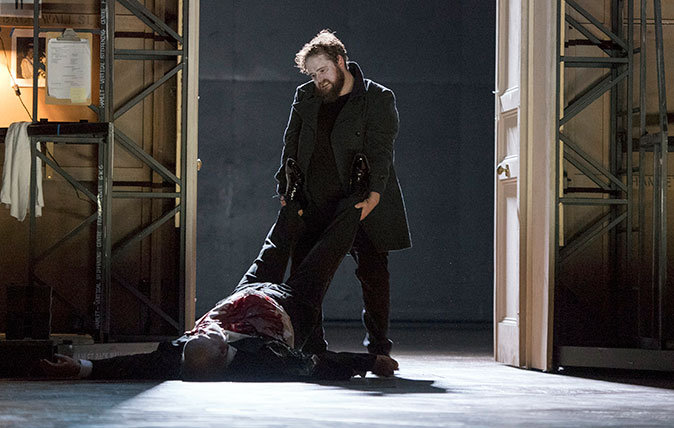

Shakespeare has been the source of countless operas and musicals, but whenever I see a show based on a familiar text, I apply one simple test: does the music enrich my understanding of the play or simply offer a decorative accompaniment? On those grounds, I have no hesitation in saying that Glyndebourne’s new Hamlet, with a score by Australian composer Brett Dean and a libretto by Matthew Jocelyn, triumphantly succeeds.
It plays in West Sussex until July 6, when it will be broadcast live to cinemas and will form part of the Glyndebourne autumn tour. I’d warmly recommend you to catch it if you can.
Before explaining why it works, it’s worth looking at the way in which Shakespeare’s plays have inspired composers and librettists, the most famous example being West Side Story, which translates the action to New York. Aside from the jazzy excitement of Bernstein’s score, I’ve always thought the musical, in one crucial way, improves on Romeo and Juliet.
In the play, the tragedy hinges on the faulty postal service between Verona and Mantua in that Friar Laurence’s message about Juliet’s simulated death fails to get through. In the musical, the vital messenger, Anita, is so abused by the Jets that she tells them Maria is dead. For once, the climactic tragedy is plausibly motivated.
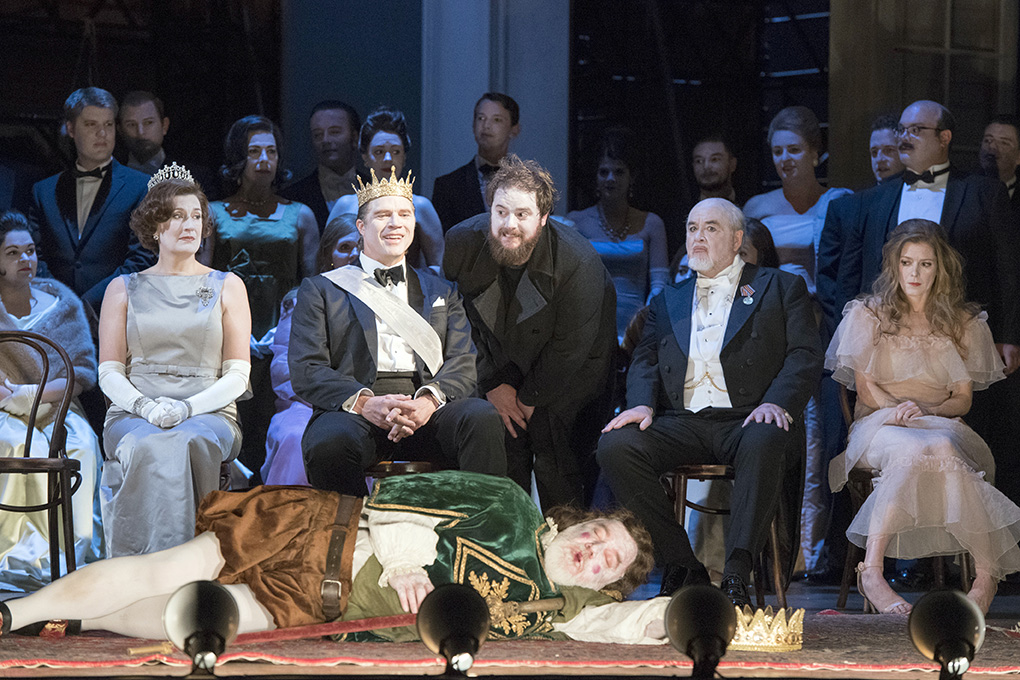
With opera, I apply the same test: does the work heighten or illuminate the original in any way? Verdi was the most dedicated Shakespearean composer and his greatest works intensify our understanding. His Falstaff is a far richer achievement than The Merry Wives of Windsor, which inspired it: just think of that final fugal chorus that cele-brates the absurdity of the human condition.
Verdi’s Otello not only matches its source, but when Iago confesses his nihilistic philosophy – ‘Credo in un Dio crudel’ – it offers something absent from the play. Perhaps because I’ve never seen an outstanding production of it, I’m less persuaded by his Macbeth, with witches who are as much cackling gossips as oracular prophets. Even the music can’t make up for the concentrated poetic power of Shakespeare’s version.
Among modern works, Britten’s A Midsummer Night’s Dream is the supreme example of an opera that adds an extra dimension to Shakespeare. Seeing Sir Peter Hall’s famous production revived at Glyndebourne last year, I was enchanted by the way the composer, in the opening bars, evokes the rustling leaves and creaking branches of the wood: this is music as a source of magic.
Sign up for the Country Life Newsletter
Exquisite houses, the beauty of Nature, and how to get the most from your life, straight to your inbox.
The use of harps and harpsichord for the fairies, strings and woodwind for the lovers, bassoon and brass for the rustics, also characterises the different worlds of the play.
Watching Ryan Wigglesworth’s version of The Winter’s Tale for ENO this year, however, I found myself admiring the composer’s skill without ever feeling that the score was doing more than setting words to music.
I admit that I approached Mr Dean’s new operatic Hamlet with a certain wariness. Having seen at least 50 productions of the play, I wondered what music could possibly add. I can only say that my doubts were immediately overcome.
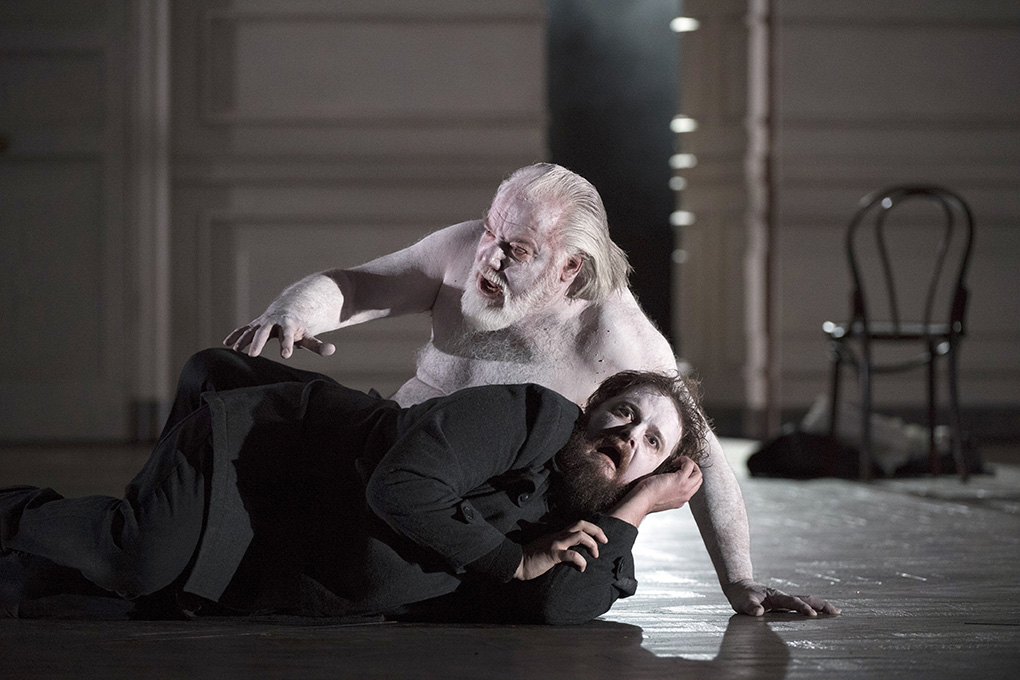
For a start, Mr Jocelyn’s libretto is not a precis of the play, but a total reimagining of it in which Shakespeare’s words are reordered and re-felt. The first image is of an anguished, spotlit Hamlet, in the midst of a mummified court, uttering broken phrases such as ‘…or not to be’ and ‘quintessence of dust’ as if anticipating the trauma that awaits him.
Mr Dean’s music also perfectly expresses the jagged state of Hamlet’s mind and goes on, in myriad ways, to highlight individual characters. Having played Ophelia as a schoolboy, I’ve always had a special interest in her while acknowledging that she’s very difficult to play: she stands around being preached at and abused before descending into precipitous madness after the death of a father for whom she never displayed great love. However, in Barbara Hannigan’s superb performance, she becomes pivotal to the opera.
Our first glimpse of this Ophelia is as a face at a window implying her exclusion from court ritual. The singer also hints at something feverish and desperate in her love for Hamlet so that her mad scene, in which she appears muddied and stripped to her underwear, acquires a dreadful inevitability. Even the way she writhes on the floor to a crazy percussion, as she sings the word ‘joy’, gives us access to Ophelia’s torment.
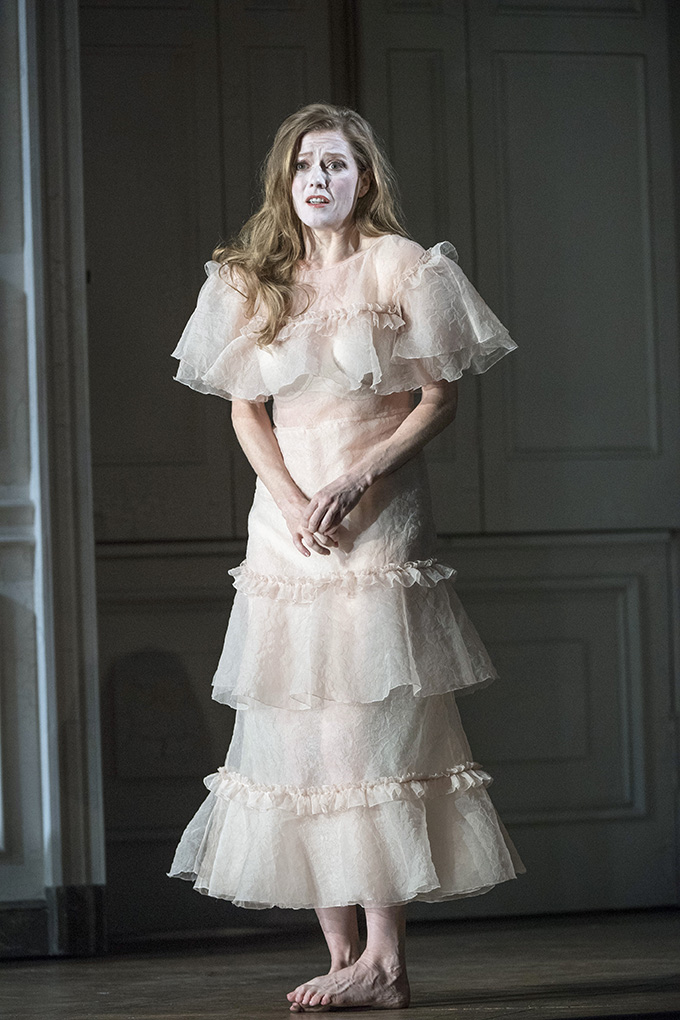
The treatment of the Ghost is equally original. It helps that he’s sung by the magisterial Sir John Tomlinson and is not some clanking spectre, but a highly corporeal figure first discovered by Hamlet seated alone in the state room. However, when Sir John reappears as the First Player, who finally gets to say ‘To be or not to be’, and later as the Gravedigger, several thoughts cross our mind. Might the Ghost be less a reality than simply the embodiment of Ham-let’s conscience and his dark suspicions about Claudius’s villainy? The opera leaves us to draw our own conclusions.
Not all the characters are so extensively reimagined. It’s wonderful to have the great mezzo-soprano Sarah Connolly as Gertrude, but the opera never explores – as many recent stage productions have done – the extent of her complicity in Claudius’s actions.
For one moment, I thought that Rosencrantz and Guildenstern – wittily cast as countertenors and, in the performances of Rupert Enticknap and Christopher Lowrey, like Gilbert & George – were going to survive, but, happily, they got their comeuppance.
At the heart of the evening is Allan Clayton’s excellent Hamlet. He is anything but the traditional, moodily romantic Dane with an aquiline profile: instead, he’s a rather bear-like figure, palpably troubled but endowed with an anarchic mischief that leads him to career over tabletops or tie together the shoelaces of sycophantic courtiers.
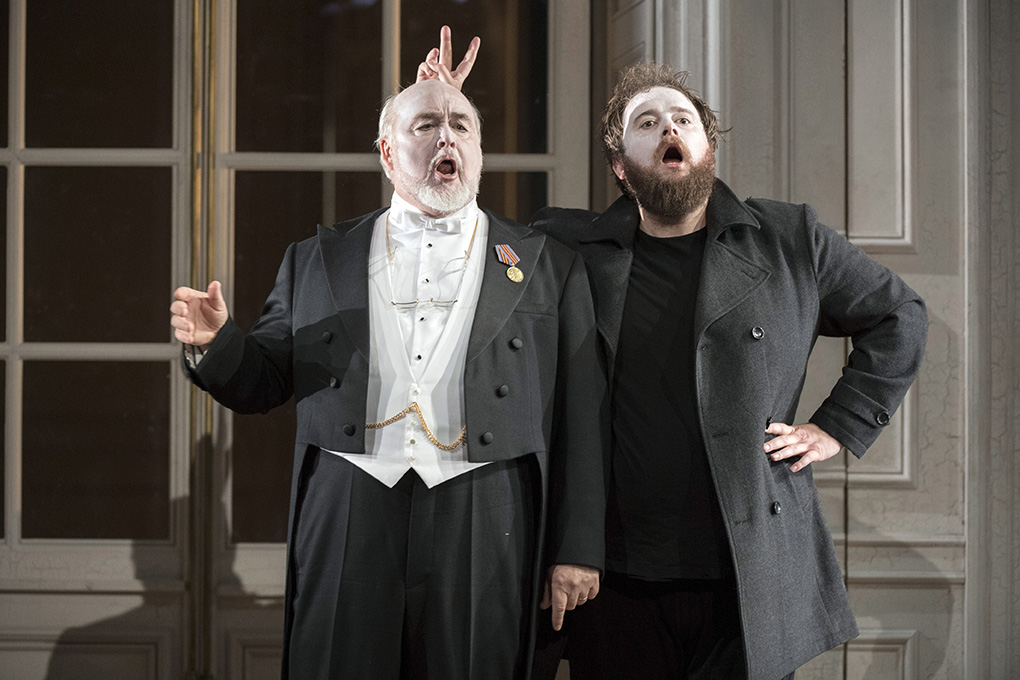
It’s a beautifully conceived performance in a production by Neil Armfield that banishes cliché while admirably serving a score that, on top of a full orchestra, deploys extra percussion in the boxes and a chorus whose voices seem eerily to emanate from every part of the auditorium.
All the words derive from Shakespeare, yet, as someone who has spent a large part of his life watching Hamlet, I felt as if I was experiencing the play with fresh eyes and ears. And that, for me, is the ultimate test.
Hamlet runs at Glyndebourne until July 6. Tickets are available via the Glyndebourne website, starting at £95.
Country Life is unlike any other magazine: the only glossy weekly on the newsstand and the only magazine that has been guest-edited by HRH The King not once, but twice. It is a celebration of modern rural life and all its diverse joys and pleasures — that was first published in Queen Victoria's Diamond Jubilee year. Our eclectic mixture of witty and informative content — from the most up-to-date property news and commentary and a coveted glimpse inside some of the UK's best houses and gardens, to gardening, the arts and interior design, written by experts in their field — still cannot be found in print or online, anywhere else.
-
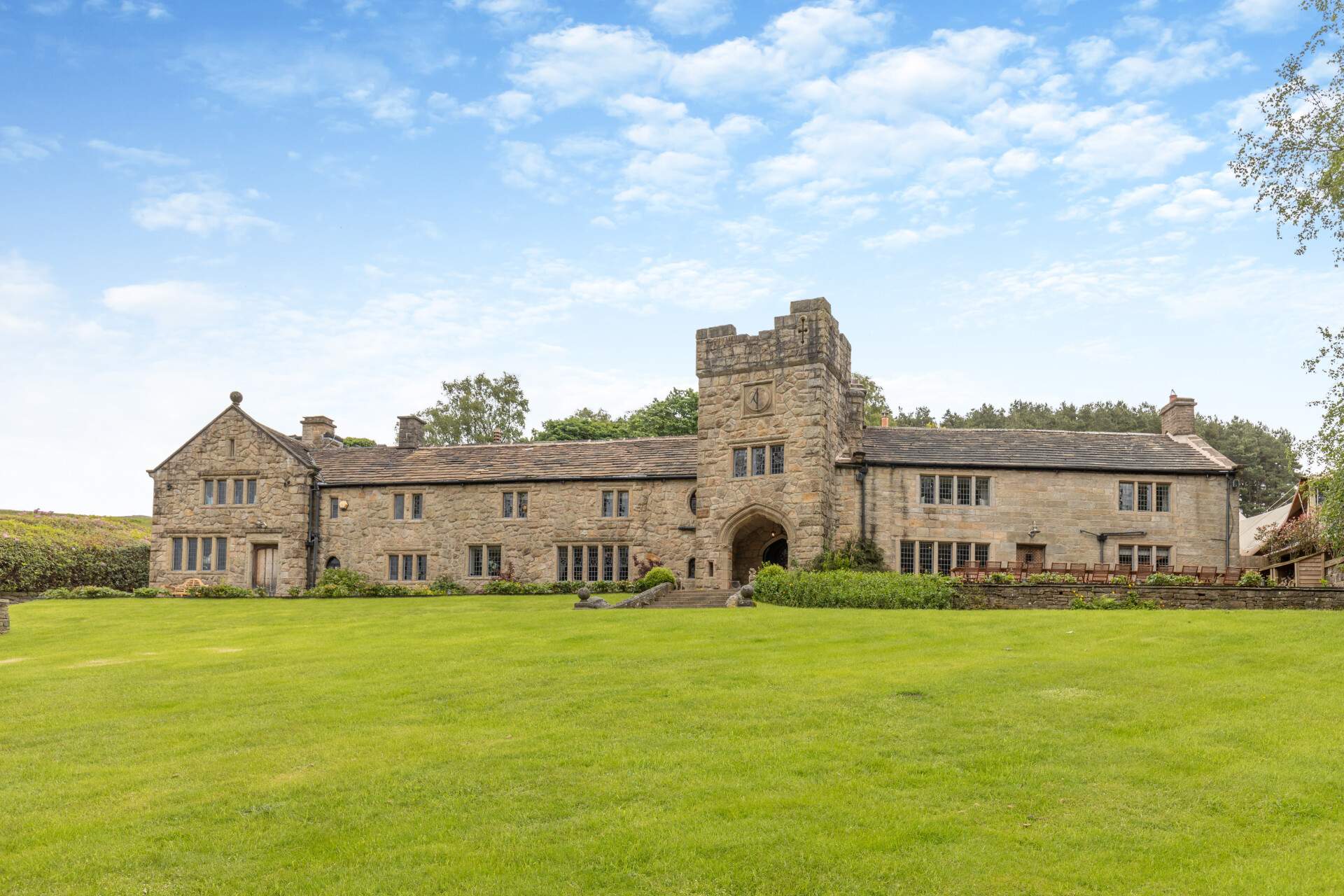 Some of the finest landscapes in the North of England with a 12-bedroom home attached
Some of the finest landscapes in the North of England with a 12-bedroom home attachedUpper House in Derbyshire shows why the Kinder landscape was worth fighting for.
By James Fisher
-
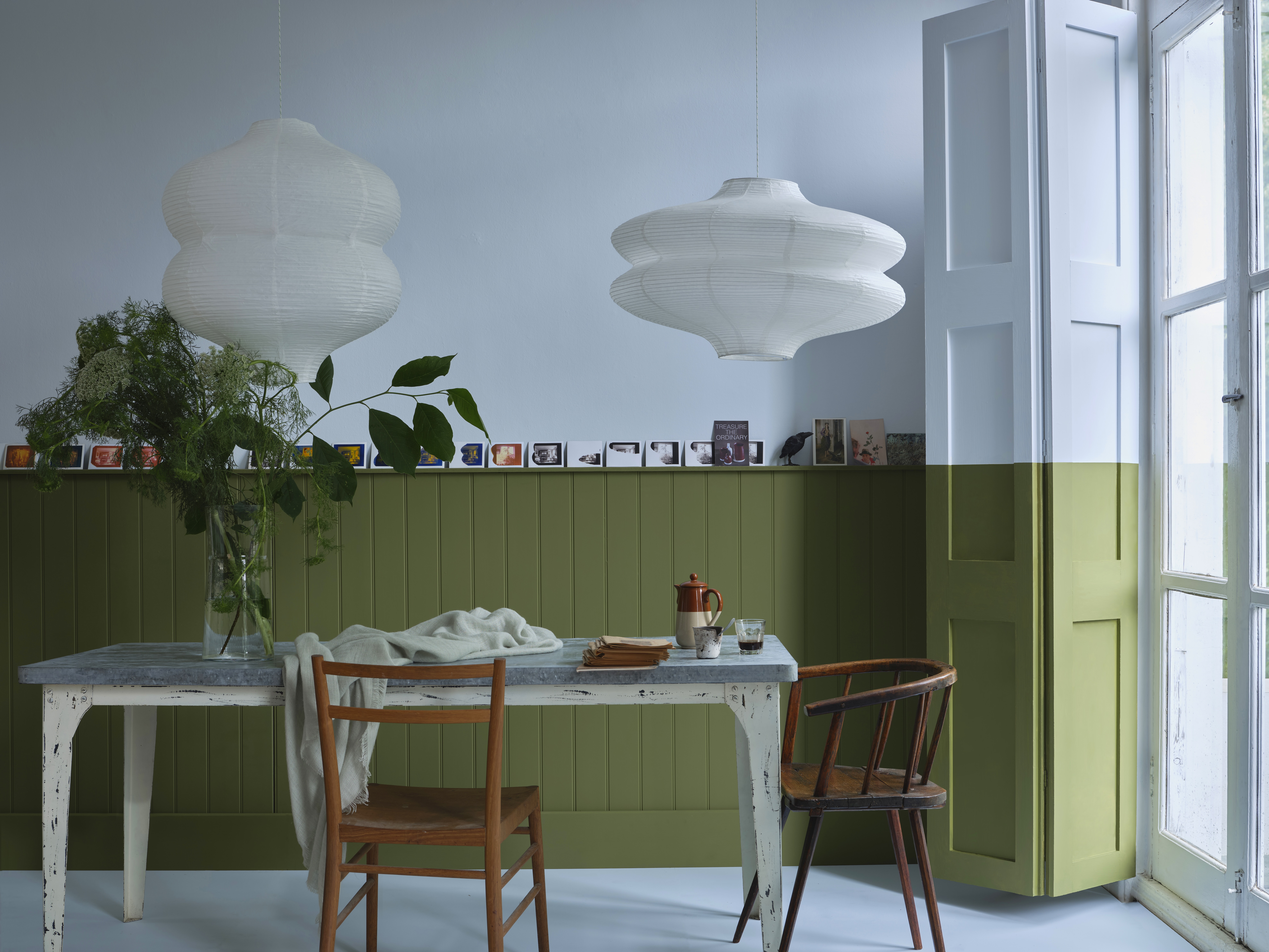 John Sutcliffe — The man, the myth and the paint-naming legend behind Dead Salmon and Elephant's Breath
John Sutcliffe — The man, the myth and the paint-naming legend behind Dead Salmon and Elephant's BreathBy Carla Passino